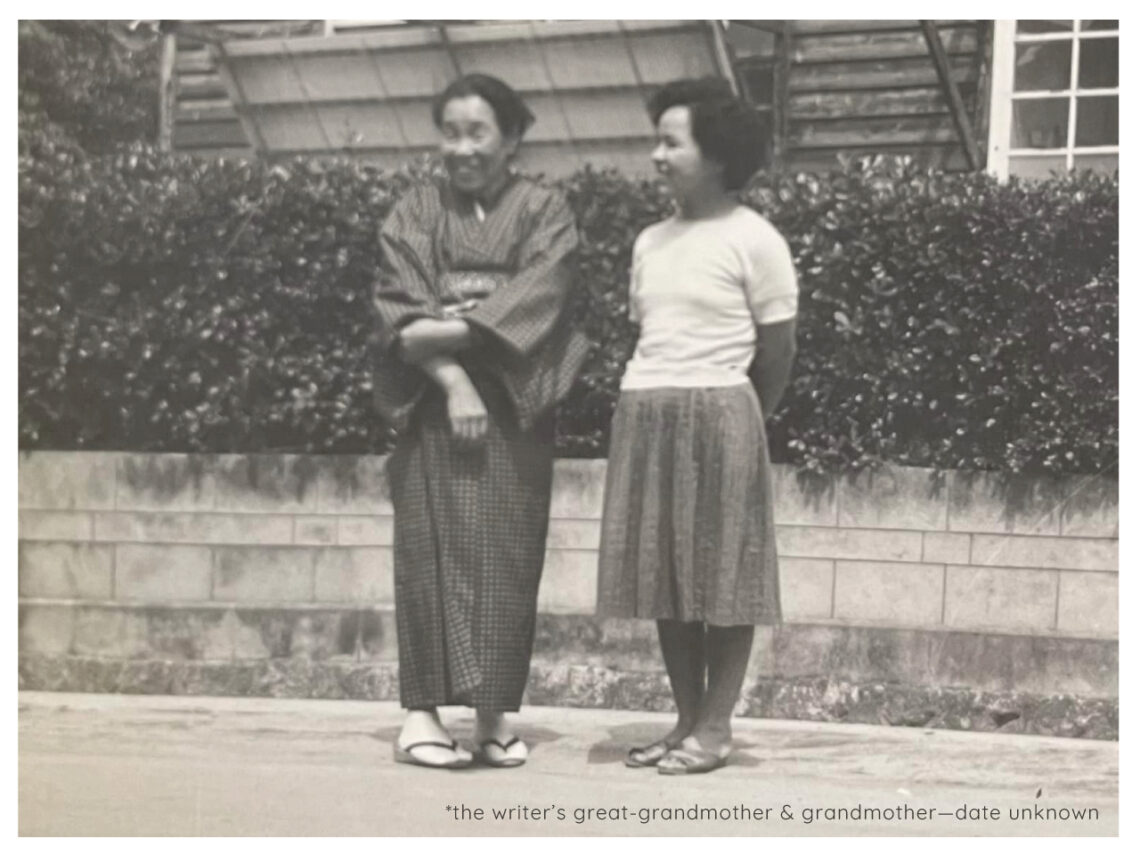What family recipe did you enjoy in your childhood and you wished you had learned to make? Once, on a cooking show I was watching in Dublin, Ireland, I heard a celebrity chef say that one family recipe can disappear within three generations. Is he right?
In this article, I would like to observe the word “tradition” with you through family recipes. As a Bespoke Artisanal Experience Coordinator and a founder of KoLe SHIKOKU Japan, my life is surrounded by traditions, traditional crafts, and traditional craft artisans. I sometimes feel we underestimate and are intimidated by the words “traditional” or “tradition.”
Why is that? I think it’s because we never really paid much attention to the words.
Traditions are something that is everywhere:
It’s something very special but not rare, yet it’s very fragile and easily vanished.
Does it sound like a riddle? By the end of this article, you will see what I mean.
- The Taste of Tradition
- Three is the Magic Number
- It Takes Just ONE
- Tradition Had to Start Somewhere
The Taste of Tradition
Let me return to the first question: What family recipe did you enjoy in your childhood and wish you had learned to make?
Do you have any? I have two: my grandmother’s noodle-dipping broth and my father’s Bavarois.
The ingredients of noodle-dipping broth in this area, Kagawa (Japan), are pretty much the same. However, the ratio of ingredients and other factors makes the taste unique to each household.
I have been trying to recreate my grandmother’s taste for 20 years, yet I haven’t succeeded. I really cannot recreate the sweetness of her broth. I asked my mother if she knew how my grandmother made the broth. She has no idea.
One of my father’s hobbies was making sweets. Until I started going to school, I thought every father made kids’ birthday cakes. My brother and I used to come home to the dining room table filled with swan-shaped cream puffs baked by my father. He attempted different kinds of sweets. Among many, my favorite was Bavarois.
He wrote notes on the recipe books to arrange the recipes he thought were best. Today, the recipe books he used are still in the kitchen. I have his recipe. I’ve always thought recipes are for recreating the same tastes over and over, but I’ve never succeeded in recreating his Bavarois.
What have these two dishes taught me in my field of keeping traditional crafts?
Once skills and knowledge are lost, it’s nearly impossible to recreate exactly the same things, even with the records of how to make them. This is because the most critical key factors can only be taught directly.
For example, in my grandmother’s case, it could have been the heat, timing, or specific ingredients, and in my father’s case, it could have been the whipping, timing, texture, or prep that he didn’t write down… literally, God knows what I am doing wrong since they are deceased.
Three is the Magic Number
As I mentioned at the beginning, a celebrity chef said that a family recipe can disappear within three generations. If your grandparent knows how to make a traditional recipe passed on from her mother/father, and if your mother/father didn’t learn it, you, your siblings, or your cousins have the last chance to keep the traditional taste.
It is not just about cooking; this can also be said about the language. They say that it is hard to transmit immigrant languages for over three generations.
Transfer of language declines over generations.
Immigrant-language transmission has declined when comparing one generation to the next generations. In 1981, 41% of mothers passed on their language; the corresponding proportion for their daughters in 2006 (when they were mothers) was 23%, a drop of 18 percentage points from one generation to the next.
— Statistics Canada: Languages
(https://www150.statcan.gc.ca/n1/pub/11-402-x/2012000/chap/lang/lang-eng.htm)
Are there any customs that you don’t call family traditions but have been followed in your family for over three generations? Are they good customs that you would like to continue? Then, start to claim them as your family tradition! Because it’s challenging and rare to pass on anything other than our DNA for over three generations.
Anything that continues over three generations is remarkable in human society.
The smallest unit of society is the family. Even within the family, keeping family tradition takes awareness, will, and care of the family members.
It Takes Just ONE
Why is it so hard to keep a tradition over three generations?
Because it takes one person/generation to stop it.
Are there any family traditions you remember from your childhood that nobody in your family follows anymore? If you do, why do you think nobody does it?
It may sound awful to stop a family tradition, and you might not want to be the one to do it. However, it might happen during your turn, like a Russian roulette.
My family had a tradition of getting ready for the New Year celebration.
All females of family members (grandmother, mother, aunt) and children gathered in the kitchen to cook and make Mochi (rice cake) and Osechi (the special meals for New Year’s Day), even for extended families. Once it was done, my grandmother separated what we had made for my mother and aunt. My mother brought it to her mother, and my aunt brought it to her family (my cousins’ family).
There were nine people in the house at the most at that time of the year. Among the nine, seven of us were in the kitchen. It was so much fun, filled with laughter, minor troubles and accidents, and lots of good food.
But today, we don’t do that anymore. There are a few reasons, but the primary reason is that the family is shrinking. The older generations were in heaven. I only have one child, but she is grown up. My generation, myself, my brother, and my cousins, are prime working age, and some are away or married. As a firstborn child, and to maintain the tradition even partially, I take traditional holidays, such as Obon and New Year, which are the time I dedicate to the family tradition.
Sometimes, some family traditions stop inevitably, and it happens in one generation. At the same time, reviving the tradition also takes one generation. My cousins and I are talking about restoring the tradition because we are the last ones remembering the time.
Tradition: It takes one person/generation to stop and also takes one person/generation to revive.
Tradition Had to Start Somewhere
The traditional crafts I handle have centuries of history. This might be why some people find the word “traditional crafts” intimidating because of its long history. What many people overlook is that “a tradition had to start somewhere.”
Once upon a time, these crafts were new and cutting-edge. Luckily, many factors helped traditional crafts survive until today. The main factor is people: those who made, those who sold, those who bought and used the crafted items. Among these people, those who bought and used the craft had the most impact on whether it survived or not.
For many traditional handicrafts worldwide, we are the last generation to buy and use them, determining whether each craft will remain for the next decades. Are we going to be the ones to stop the tradition?
What’s “traditional/tradition” again?
Traditions are something that is everywhere.
It’s something very special but not rare, yet it’s very fragile and easily vanished:
- Once skills and knowledge are lost, it’s nearly impossible to recreate exactly the same things, even with the records of how to make them—it can only be taught directly.
- Anything that continues over three generations is remarkable in human society.
- It takes one person/generation to stop a tradition and also takes one person/generation to revive it.
Also, tradition is something that you can start because any tradition that exists today has to start somewhere with someone.
There are a few things I’d like you to think about. Just thinking about it is enough for now.
- Are there any family recipes that you would like to learn before it’s too late?
- Are there any customs/traditions that you would like to keep?
- Are there any customs that you realized that could be family traditions?
- Are there any traditional handicrafts in your area?
- Are there any new traditions that you would like to start?
I hope this article helped you to feel “tradition” closer and dearer than ever.
Thank you for reading till the end.







Comments by satoko